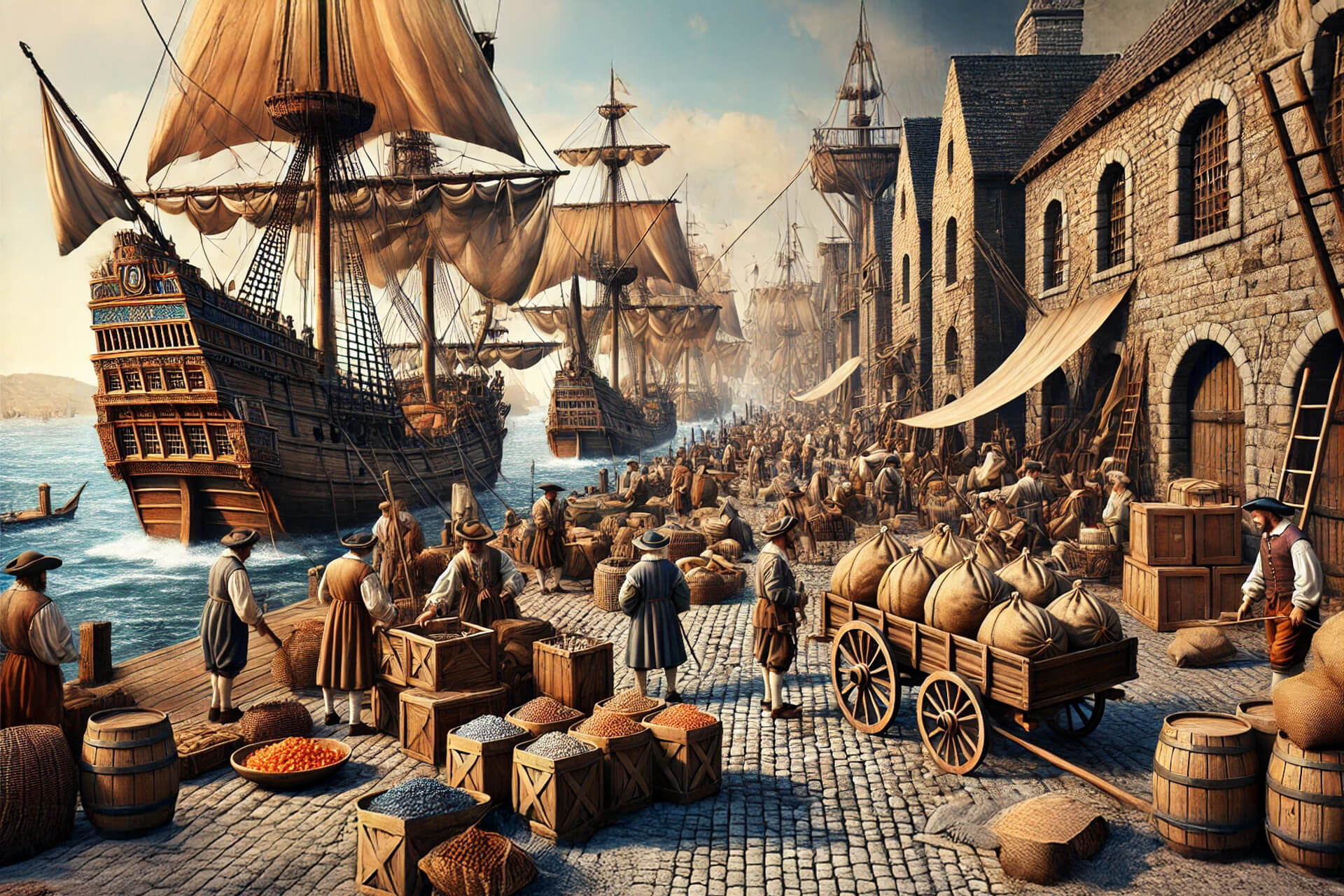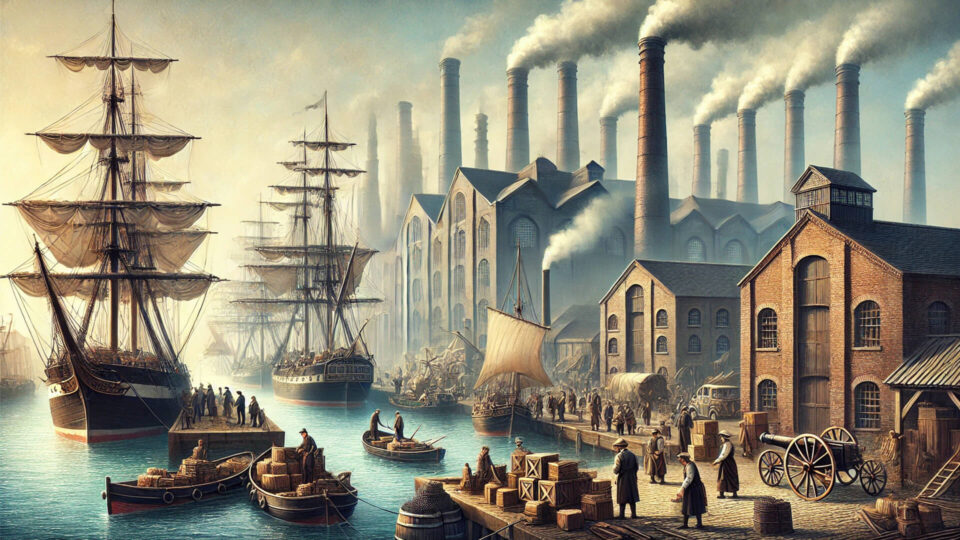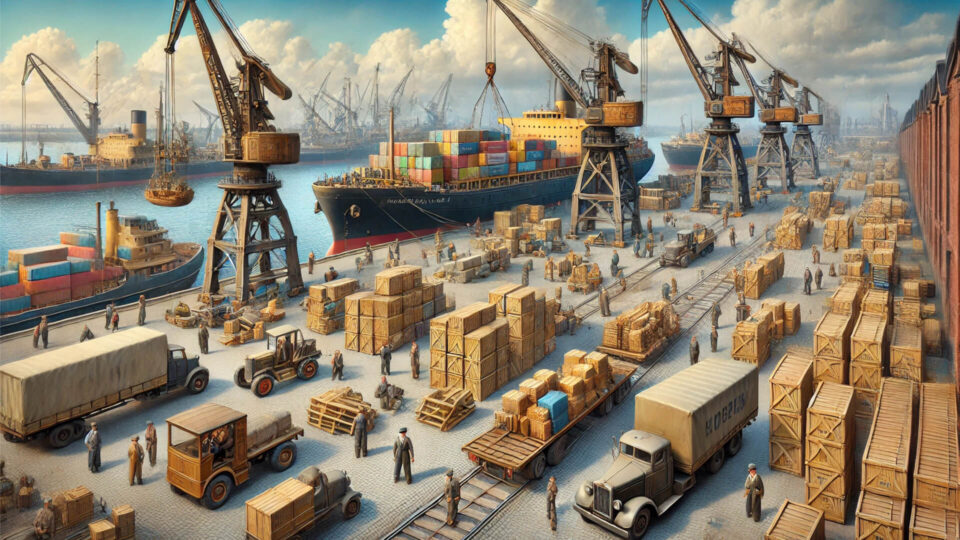The History of Ship Suppliers : Essential Pillars of the Maritime Industry
A ship supplier is a key player in the maritime industry, responsible for providing vessels with the necessary provisions, equipment, and services to ensure smooth operations during voyages. These suppliers cater to ships of all types, from massive cargo ships to luxury liners, offering everything from food and water to spare parts and maintenance services. The role of the ship supplier has evolved over centuries, becoming more complex and specialized as the demands of global shipping and maritime trade have grown.
This article explores the history of ship suppliers, tracing their evolution from the early days of maritime exploration to the modern, global supply chains that sustain the industry today.
The Beginnings of Ship Supply and the Age of Exploration
The need for ship supplies dates back to ancient maritime cultures. In the earliest times, seafaring civilizations like the Egyptians, Greeks, and Romans relied on local merchants to provide essential items for their voyages, such as food, water, tools, and materials for ship repairs. However, these provisions were often simple and limited to immediate necessities.
During the Age of Exploration, which began in the 15th century, European explorers embarked on long journeys that required extensive planning and provisioning. As ships set sail on voyages to the Americas, Africa, and Asia, the role of the ship supplier became more pronounced. Merchants in port cities like Lisbon, Seville, and Venice began to offer a broader range of goods, from salted meats to spices and trade commodities, to meet the diverse needs of long-term voyages. These early suppliers were instrumental in ensuring that ships were well-stocked with everything required to support sailors for months or even years at sea.
The Rise of International Trade and the Expansion of Ship Supply Services
As global trade flourished in the 17th and 18th centuries, the maritime industry expanded rapidly, and so did the need for ship supplies. The rise of merchant fleets, along with the development of larger and more complex vessels, brought about a more organized system of provisioning. Ports around the world became essential hubs for the supply of ships, and businesses specializing in ship supplies, known as ship chandlers, began to emerge.
During the 18th century, the Industrial Revolution further accelerated the demand for specialized ship supplies. Steamships, iron-hulled ships, and large merchant vessels created new requirements for provisioning. Ship suppliers expanded their inventories to include not only food and drink but also equipment such as anchors, ropes, navigational tools, and even spare parts for ship maintenance.
Modern Ship Supply Services
The 20th century marked a new era in the history of ship suppliers. The size and complexity of ships grew significantly, with massive tankers, container ships, and cruise liners becoming the new standard. This required a far more sophisticated and global approach to ship supply. The need for diverse, high-quality provisions and specialized services became even more critical as shipping expanded worldwide.
Technological advancements also transformed the industry. Innovations such as refrigerated containers for perishable goods, automated inventory management, and GPS tracking systems helped streamline the procurement and delivery of supplies. The development of containerization during the mid-20th century revolutionized the shipping industry, and suppliers had to adapt to the increasing scale and speed of maritime trade.
Ship suppliers broadened their product ranges to meet the unique requirements of various types of vessels. Cargo ships required specialized maintenance and technical supplies, while passenger ships needed luxurious food, beverage, and service offerings. The growth of the cruise industry also created a new niche for suppliers, who began offering higher-end provisions and catering services for passengers on board.
The Role of Ship Suppliers Today
In the modern era, ship suppliers are an essential part of the global shipping ecosystem. The maritime industry operates on a vast scale, with vessels traveling across oceans and delivering goods around the world. Suppliers must manage intricate, international supply chains to ensure that ships receive the necessary provisions, maintenance supplies, and spare parts in a timely manner.
Today, the ship supply industry is diverse, with suppliers offering everything from dry, frozen, and chilled food products to complex machinery and specialized equipment for maintenance. Modern suppliers must also navigate a complex web of regulations, including environmental standards, customs requirements, and safety protocols, all of which influence how they do business.
One of the most significant trends in the industry today is the increasing focus on sustainability. As environmental concerns grow, ship suppliers are faced with the challenge of offering eco-friendly products and services. This includes providing ships with sustainable, low-impact supplies, such as biodegradable cleaning products, energy-efficient equipment, and provisions sourced from sustainable practices.
Additionally, technological innovations continue to shape the industry. The introduction of automated supply systems, drones, and digital inventory management platforms is making it easier for suppliers to meet the increasing demands of modern vessels. The use of real-time data and tracking systems ensures that deliveries are more efficient, transparent, and reliable.
Challenges Facing Ship Suppliers
While the ship supply industry has flourished, it is not without its challenges. One of the primary concerns today is the volatility of global shipping. Geopolitical tensions, supply chain disruptions, and economic uncertainties can create unpredictable demand for supplies and increase the complexity of logistics operations.
Moreover, fluctuations in fuel prices, labor shortages, and the global push for decarbonization in the maritime industry present additional challenges. Ship suppliers are required to adapt to these changing circumstances, all while ensuring their operations remain efficient and cost-effective.
Conclusion
The history of ship suppliers reflects the changing dynamics of global trade and the evolution of maritime operations. From their humble beginnings in ancient port cities to their current role in managing global supply chains, ship suppliers have been integral to the success of the maritime industry. Today, they face new challenges but also new opportunities, especially in the realms of technology, sustainability, and efficiency.
As global shipping continues to grow and innovate, the ship supply industry will undoubtedly evolve, adapting to the changing needs of vessels, the environment, and the world’s economies. The essential role of ship suppliers will remain unchanged, supporting the vital infrastructure of global trade.


